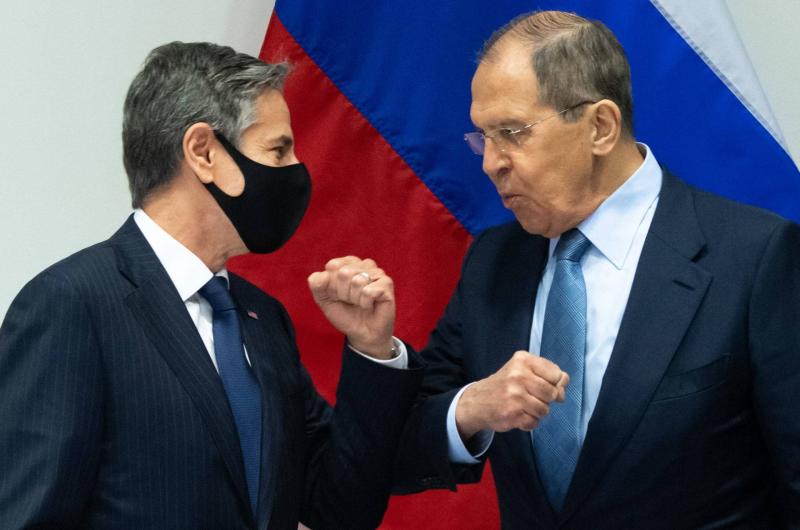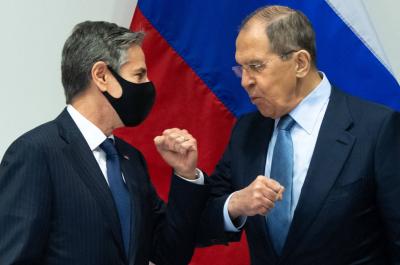In light of recent developments, Russian Foreign Minister Sergey Lavrov warned that the international relations system is currently undergoing serious negative changes, emphasizing that Moscow will not stand idly by in response to the West's actions towards it. Lavrov, speaking on Wednesday before the Russian State Duma, stated that there are fundamental changes occurring internationally, which are not entirely positive, at the very least. He added that the entire system is experiencing disturbances.
The Russian minister issued a threat to the United States, confirming that his country will take action if it does not receive answers from Washington, asserting that it will not remain passive towards the West's behavior, in reference to the proposals Russia made last week requesting limitations on NATO’s expansion and activities in Eastern Europe.
**Minsk Agreement as the Solution**
Lavrov emphasized that the European Union has no role in dialogue regarding Ukraine. He also expressed that Russia is participating in achieving peace in various regions of the world, urging the West to pressure Ukraine into implementing the Minsk Agreement, which he considers a solution to overcome the crisis.
**Russia Insists on Implementing Minsk 1 and 2**
On September 5, 2014, representatives from Russia and Ukraine, along with Donetsk and Luhansk, signed the "Minsk 1" agreement to end the war in the Donbas region of Ukraine, following the separatists' attempts in the east to gain independence and join Russia, which annexed Crimea in 2014. With the separatist movement extending its control over several Ukrainian cities, armed confrontations broke out with Ukrainian forces, paving the way for the signing of the "Minsk 1" agreement, which imposed a ceasefire that was soon violated, leading to widespread clashes.
Since "Minsk 1" did not end the fighting in Donbas, leaders from Ukraine, Russia, France, and Germany met during the "Minsk summit" in February 2015 in western France and agreed on a series of measures to end the war, later known as "Minsk 2." This included a detailed roadmap to resolve the conflict in Ukraine, consisting of a 13-point plan starting with a ceasefire, the surrender of heavy weapons by the separatists from the frontline, prisoner exchanges, and preparations for local elections with amnesty for military personnel and separatist fighters. Ukraine also committed to implementing constitutional changes in exchange for the withdrawal of all Russian forces.
**Reinforcements and Exchange of Accusations**
Since the spring of 2021, Moscow has begun military reinforcements at the Ukrainian border, and by the fall, heavy equipment such as artillery and anti-aircraft systems arrived before the current diplomatic phase commenced. Subsequently, Russia moved an estimated one-third of its combat groups to the Ukrainian border, raising Western concerns and complicating matters, according to U.S. intelligence data. Meanwhile, U.S. forces have confirmed their readiness to be deployed in Europe if necessary, threatening to impose severe sanctions should Moscow carry out its threats. NATO has decided to reinforce its defenses to the east, while Moscow denounced this desire as "fomenting tension." NATO countries showcased their support for Ukraine in ways deemed provocative by Moscow, which included naval exercises in the Black Sea last November (2021) and the delivery of a batch of U.S. patrol boats to the Ukrainian navy, infuriating Russia.




